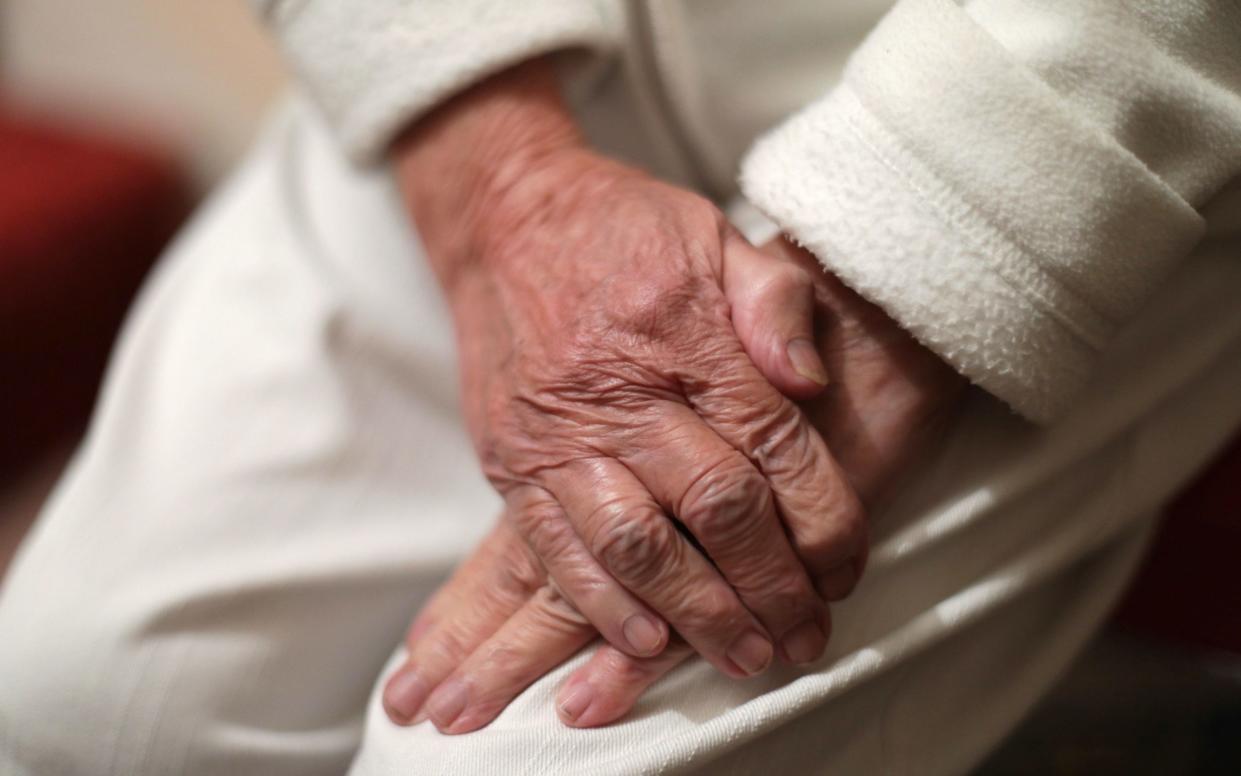Waiting times for a dementia diagnosis double since Covid pandemic

Waiting times for people with suspected dementia have doubled since the pandemic, an investigation has revealed.
Charities warned that thousands of people have been left “stranded” as waits to get a diagnosis get longer.
It follows warnings that the NHS is failing to clear backlogs built up during the pandemic, with a missing 32,000 diagnoses after patients struggled to access services or did not visit medics for fear of being a burden.
Experts said elderly people are being left without support or medication to help to manage symptoms, as they endure long waits for crucial tests.
The NHS audit by the Alzheimers’ Society found average waits for scans used to help diagnose dementia have now reached 10 weeks - up from five weeks in 2019.
When GPs suspect dementia, patients should be referred for such tests, which normally take place at memory clinics.
NHS targets say 99 per cent of cases should receive the checks within six weeks.
But the audit of 29 NHS trusts and health boards in England, Northern Ireland and Wales - around half of those that run such services - found one in 10 had average waits of six months. Overall, the average delay was 10 weeks.
The scans are part of a process of checks, including memory tests, that are used to establish a diagnosis.
Psychiatrists said staff shortages were the biggest cause of delays, with separate research showing that some patients are waiting as long as two years for a diagnosis.
In a survey of psychiatrists and other senior medics running memory services, 86 per cent said waits for diagnosis had lengthened since the pandemic.
More than two-thirds of those polled said shortages of staff were the biggest factor behind delays.
Official NHS figures show memory clinics are working at just 60 per cent of the capacity provided before the first lockdown, despite a backlog of diagnoses missed during the pandemic.
On average, there were 3,016 memory assessments carried out a month between January and August this year - compared with 4,824 a month in the same period in 2019, the statistics showed.
Earlier this year, an audit by the Royal College of Psychiatrists comparing data from 63 clinics across England and Wales between 2021 and 2019 found some patients waiting up to two years for a diagnosis.
Overall, patients waiting an average of 17.7 weeks to find out if they have dementia after being referred to a memory assessment service, up from 13 weeks before the pandemic.
Dr Mani Santhanakrishnan, chairman of the Old Age Faculty at the Royal College of Psychiatrists, said: “Waiting so long for a diagnosis at the crucial stage of the onset of the illness can be devastating for people with dementia and their families.
“Managing the condition alone while waiting can lead to significant memory loss, and it’s an incredibly challenging time for the wellbeing of patients and those close to them.”
He urged ministers to take “urgent action” to improve diagnosis and support.
'Thousands of people stranded on waiting lists'
Mark Macdonald, associate director of advocacy and system change at the Alzheimer’s Society, said: “Across the UK, we’re still seeing thousands of people stranded on waiting lists - not knowing if their symptoms mean that they are indeed living with dementia, and at the same time unable to get any support or medication for their symptoms.
“NHS England has recognised the challenge, but the £17 million it invested has clearly not been enough to improve things, as diagnosis rates are still at a five-year low and stagnating, with more than 32,000 people still needing to be diagnosed just to get back to pre-pandemic levels.”
A decade ago David Cameron, then the prime minister, set a “dementia challenge” that two-thirds of those with the condition should receive a diagnosis, in order to get the help they needed.
Before the pandemic, this had been achieved.
But from Jan 2020 to Aug 2022, dementia diagnosis rates in England dropped from 67.6 per cent to a five-year low of 62.1 per cent, official data showed.
The charity urged ministers to “make good” pledges to publish a 10-year plan on dementia - and to include within it pledges to return performance to pre-pandemic levels.
Derek Thomas, 81, from Liverpool, was diagnosed with vascular dementia in Feb 2021 after being on a waiting list for a Memory Assessment Service for eight months.

His wife Maureen, 79, said: “It was a really stressful time, not only were we waiting desperately to be seen, but we were living with Derek’s symptoms, which were getting worse.
“He was getting more confused, and started losing whole days of memory, which was really dangerous for him and me as his sole carer.
“Because we didn’t have the diagnosis, we didn’t have the support or understanding of how to help him, let alone prescriptions for medication. I feel like we lost eight crucial months where he could have been supported.”
A Department of Health and Social Care spokesman said: “We’ve set out Our Plan for Patients, which will put patients first and tackle the challenges they face – including tackling Covid backlogs and delivering faster diagnoses.
“We have virtually eliminated waits of more than two years for treatment – the first major target in our elective recovery plan – and we are also opening up to 160 community diagnostic centres across the country, 92 of which are already open and have already delivered 1.9 million additional checks.”


